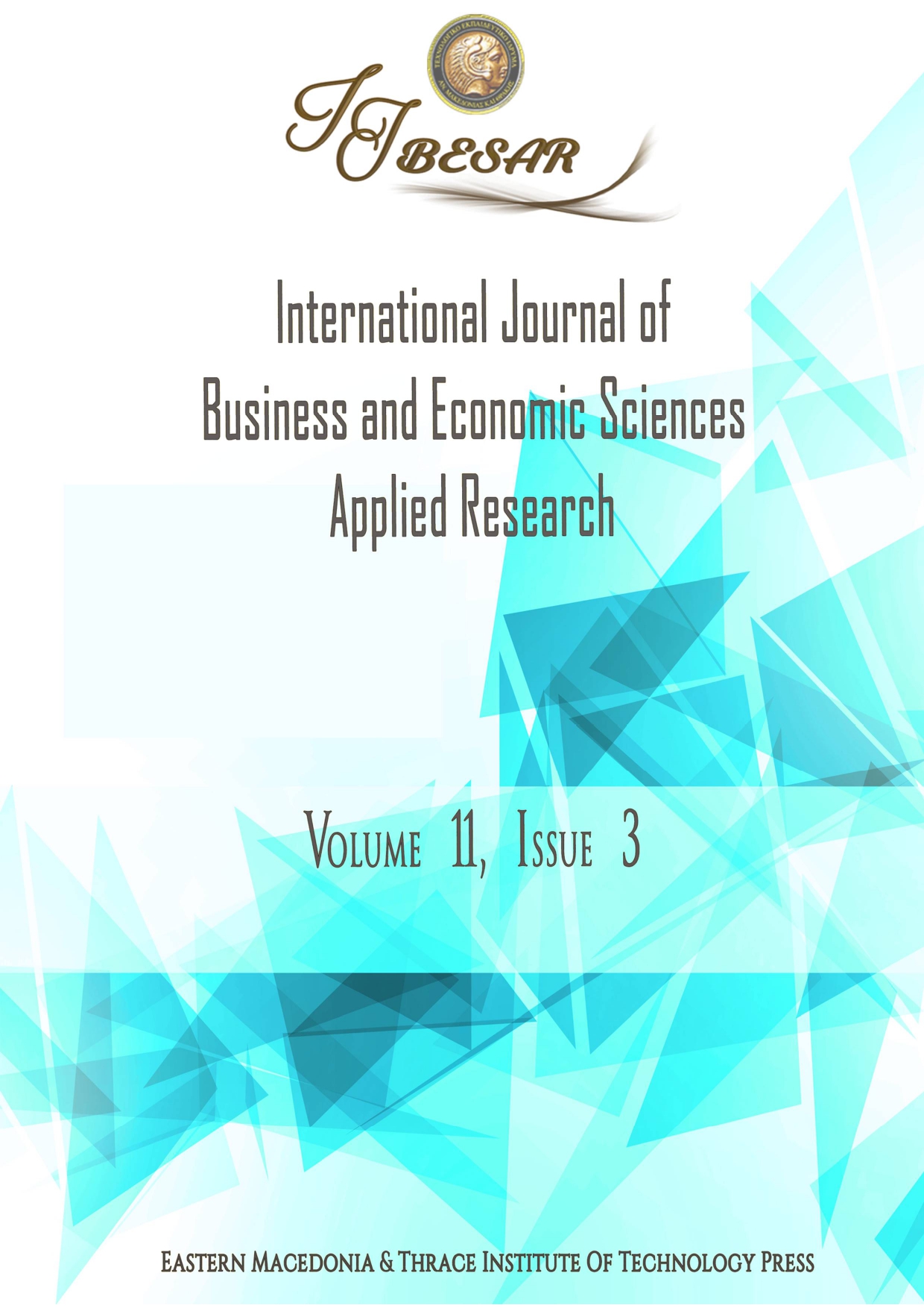Trade Openness and Economic Growth in the GCC Countries: A Panel Data Analysis Approach
Trade Openness and Economic Growth in the GCC Countries: A Panel Data Analysis Approach
Author(s): Mohamed Khaled Al-Jafari, Hatem Hatef AbdulkadimAltaeeSubject(s): Business Economy / Management, International relations/trade, Economic development, Transformation Period (1990 - 2010), Present Times (2010 - today)
Published by: Τεχνολογικό Εκπαιδευτικό Ίδρυμα Ανατολικής Μακεδονίας και Θράκης
Keywords: Trade openness; Export; Import; Economic Growth; GCC; Panel Data;
Summary/Abstract: Purpose: The purpose of this study is to re-examine the relationship between trade openness and economic growth in the Gulf Cooperation Council countries (GCC), with emphasis on both the role of exports and imports in economic growth in a multivariate framework including gross fixed capital formation, energy consumption, import, and export as the regressors. Design/methodology/approach The study covers the period from 1992 to 2014 and utilizes five models of the panel data regression: pooled ordinary least squares, one-way and two-way of fixed effects models as well as one-way and two-way of random effects models. In addition, the study employs the root mean square error statistics in selecting the most representative model. Findings: The study found that partially, export had a significant positive effect on economic growth, while import had a significant but negative impact on economic growth. These results provide evidence that GCC countries during the period of study were largely dependent on exports, in which carbohydrate exports account for the bulk of their business trading activities. Moreover, the findings reveal that investment and energy, as conventional input factors had a significant and positive impact on the GCC’s economies. Research limitations/implications: According to our finding, export is the most important contributor to economic growth. In addition, in order to ensure the stability of economic growth of these countries, more effective and efficient import policies must be pursued. Originality/value The novelty of this study is the uses of panel data covering more than two decades, and employs different models that allow testing of many hypotheses.
Journal: International Journal of Business and Economic Sciences Applied Research (IJBESAR)
- Issue Year: 11/2018
- Issue No: 3
- Page Range: 57-64
- Page Count: 8
- Language: English

